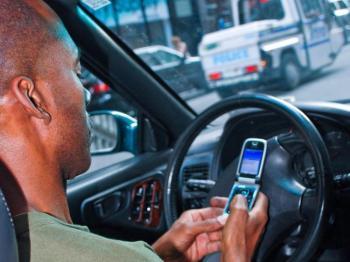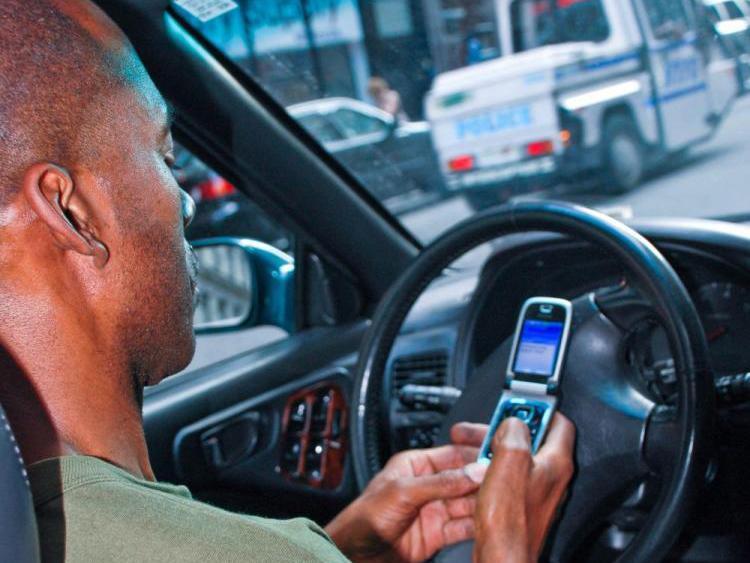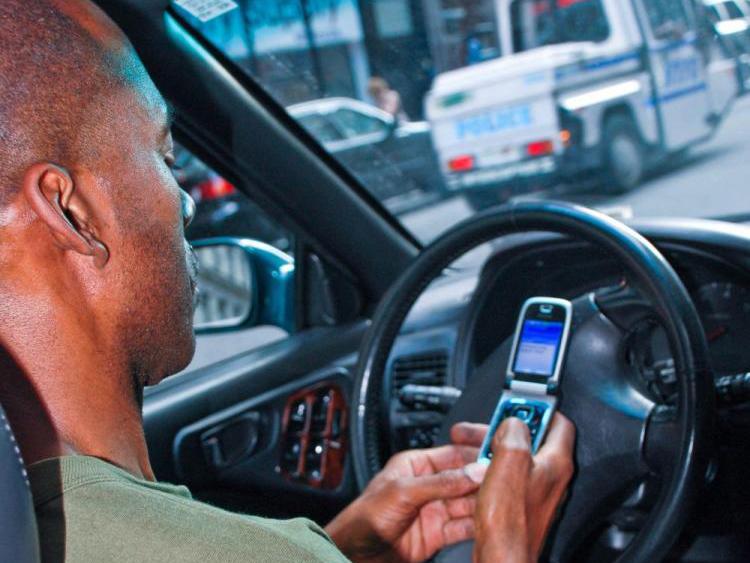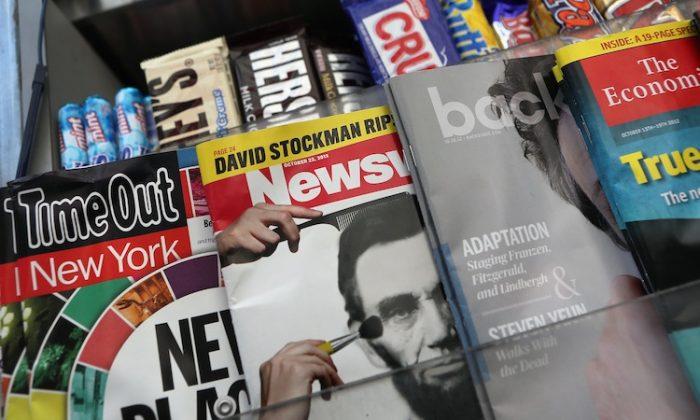NEW YORK—Texting while driving increases collision risk by a factor of 23 times, found a recent study. That’s why four Democratic U.S. senators proposed new legislation on Wednesday, banning Americans from texting while at the wheel.
The federal bill unveiled by U.S. Sen. Robert Menendez (D-N.J.), Charles E. Schumer (D-N.Y.), Mary Landrieu (D-L.A.) and Kay Hagan (D-N.C.) would oblige states to forbid sending of text or email messages while operating a vehicle.
Within six months of the passage of the bill—known as Avoiding Life-Endangering and Reckless Texting by Drivers Act (“ALERT Drivers” Act)—the U.S. Department of Transportation (DOT) will establish minimum penalties within state laws. The states then have two more years to pass compliant bans, otherwise risk losing 25 percent of annual federal highway funding for each year they fail to cooperate.
“iPhones, Sidekicks and Blackberries are ingenious, indispensible devices. But while they make our lives so much easier, they make driving that much harder,” said Menendez in a news release.
One instance of the widespread practice’s consequence was in Los Angeles, California, where the worst train crash in 15 years took place in September 2008. While a train conductor was text messaging, the train went through a red light and crashed into a freight train, killing 25 and injuring 135.
Accordingly, DOT’s Federal Railroad Administration (FRA) issued an emergency order in October 2008 barring on-duty railroad operaters from using cell phones and other electronic devices. Texting while driving was banned in California on January 1.
At present, 14 states and Washington D.C. outlaw all drivers from texting while operating a moving vehicle. Eleven other states have a modified ban on the practice.
“Texting while driving should be illegal on every road, every railway, in every state,” said Menendez.
Another catalyst for the bill was a study released on Monday by the Virginia Tech Transportation Institute (VTTI). The institute conducted large-scale driving studies by collecting data through sophisticated cameras and instrumentations in participants’ personal vehicles. VTTI found drivers of heavy vehicles and trucks had a 23.2 times greater possibility of crash or near crash events when they were texting while driving.
The newly proposed legislation would only apply to drivers using mobile devices while their vehicle is in motion, but not stopped.
“I think texting while driving should be banned, because it’s very dangerous,” said Brian Richardson, Richardson, company manager of Pulse Ensemble Theater, one of New York’s oldest ensemble theaters.
Richardson, a 30-year driver, said that the only time he text messaged while driving was six months ago.
“I knew it wasn’t a good thing to do. Someone texted me and I just started to reply to him. I had to take my eyes of the road,” he said. “But my 25-year-old nephew text messages while driving all the time. He basically drives with his knees.”
While most telecom companies oppose such legislations, Verizon Wireless has a different view.
“We broke with the rest of the wireless companies in the United States. We first supported hands-free driving back in 2000. And last year also began supporting laws that would support banning text and driving. So the issue for us really hasn’t been about business, but safety,” said Jeffrey Nelson, spokesman of Verizon Wireless.
“We believe that good public policy is based on good science. We can see a lot of studies in the past two years. Now there’s a federal bill, so it’s the right time to support it,” he said.
The federal bill unveiled by U.S. Sen. Robert Menendez (D-N.J.), Charles E. Schumer (D-N.Y.), Mary Landrieu (D-L.A.) and Kay Hagan (D-N.C.) would oblige states to forbid sending of text or email messages while operating a vehicle.
Within six months of the passage of the bill—known as Avoiding Life-Endangering and Reckless Texting by Drivers Act (“ALERT Drivers” Act)—the U.S. Department of Transportation (DOT) will establish minimum penalties within state laws. The states then have two more years to pass compliant bans, otherwise risk losing 25 percent of annual federal highway funding for each year they fail to cooperate.
“iPhones, Sidekicks and Blackberries are ingenious, indispensible devices. But while they make our lives so much easier, they make driving that much harder,” said Menendez in a news release.
One instance of the widespread practice’s consequence was in Los Angeles, California, where the worst train crash in 15 years took place in September 2008. While a train conductor was text messaging, the train went through a red light and crashed into a freight train, killing 25 and injuring 135.
Accordingly, DOT’s Federal Railroad Administration (FRA) issued an emergency order in October 2008 barring on-duty railroad operaters from using cell phones and other electronic devices. Texting while driving was banned in California on January 1.
At present, 14 states and Washington D.C. outlaw all drivers from texting while operating a moving vehicle. Eleven other states have a modified ban on the practice.
“Texting while driving should be illegal on every road, every railway, in every state,” said Menendez.
Another catalyst for the bill was a study released on Monday by the Virginia Tech Transportation Institute (VTTI). The institute conducted large-scale driving studies by collecting data through sophisticated cameras and instrumentations in participants’ personal vehicles. VTTI found drivers of heavy vehicles and trucks had a 23.2 times greater possibility of crash or near crash events when they were texting while driving.
The newly proposed legislation would only apply to drivers using mobile devices while their vehicle is in motion, but not stopped.
“I think texting while driving should be banned, because it’s very dangerous,” said Brian Richardson, Richardson, company manager of Pulse Ensemble Theater, one of New York’s oldest ensemble theaters.
Richardson, a 30-year driver, said that the only time he text messaged while driving was six months ago.
“I knew it wasn’t a good thing to do. Someone texted me and I just started to reply to him. I had to take my eyes of the road,” he said. “But my 25-year-old nephew text messages while driving all the time. He basically drives with his knees.”
While most telecom companies oppose such legislations, Verizon Wireless has a different view.
“We broke with the rest of the wireless companies in the United States. We first supported hands-free driving back in 2000. And last year also began supporting laws that would support banning text and driving. So the issue for us really hasn’t been about business, but safety,” said Jeffrey Nelson, spokesman of Verizon Wireless.
“We believe that good public policy is based on good science. We can see a lot of studies in the past two years. Now there’s a federal bill, so it’s the right time to support it,” he said.







Friends Read Free